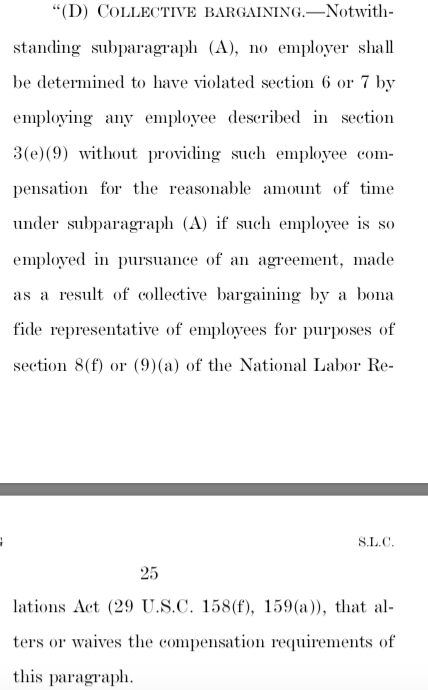A large and sweeping labor bill sponsored by U.S. Rep. Rosa DeLauro would change how workers are classified as independent contractors, make shareholders liable for labor violations and requires employers be responsible for workers’ rights in foreign countries
Oddly, and in perhaps a sign of the times, the Worker Flexibility and Small Business Protection Act also requires businesses post an emoji face on its main entry way and website to designate how compliant the business is with labor laws.
Employers will face penalties of $1,000 per worker per day and be required to post its rating in the newspaper if the business does not post its emoji face and rating on its place of business and website.

“This important legislation aims to change that and establish ground rules to stop corporations from abusing and dictating workers’ economic conditions while denying them basic workplace protections,” DeLauro said in a press release. “It provides a safety net that can fully and swiftly catch workers in the 21st century economy.”
But the bulk of DeLauro’s bill would affect independent contractors by making what is known as the ABC test a matter of federal law.
Proponents of the bill, including DeLauro’s co-sponsors Senators Sherrod Brown, D-OH, and Patty Murray, D-WA, say businesses are trying to avoid paying benefits and payroll deductions like unemployment insurance by structuring their businesses to classify workers as independent contractors rather than as employees.
The ABC test, or variation of it, is currently used by 28 states, including Connecticut, and is much more stringent than the federal government in defining who qualifies as in independent contractor.
Currently, the federal government only uses part A of the ABC test, which defines an individual as an independent contractor “if the payer has the right to control or direct only the result of the work and now what will be done and how it will be done,” according to the Internal Revenue Service.
In Connecticut and other states, however, an independent contractor must also perform the work outside the usual course of the employer’s business and must be “customarily engaged in an independently established trade, occupation, profession or business of the same nature as the service being provided.”
The gig economy, in which individuals classified as independent contractors take job assignments, have fueled debates and pushes for legislation at the state level to classify, for instance, Uber drivers as employees rather than independent contractors.
The state of California, notably, passed a law in 2019 that requires Uber and Lyft to classify their drivers as employees, entitling them to benefits. Both companies refused to comply with the law and are engaged in a court battle with the state of California and a state ballot initiative.
The California law also had the unintended consequence of forcing media companies to lay hundreds of freelance writers and artists. The online publication, VOX publishing, reportedly had to lay off 200 freelance writers and replace them with 20 full-time employees.
Although DeLauro says the bill is necessary because “gig workers are not entitled to minimum wage, sick days, overtime pay, safety protections, unemployment or health insurance,” the legislation would actually offer companies like Uber and Lyft an exemption from minimum wage and overtime regulations provided their employees are covered by a collective bargaining agreement.
Although DeLauro says the bill is necessary because “gig workers are not entitled to minimum wage, sick days, overtime pay, safety protections, unemployment or health insurance,” the legislation would actually offer companies like Uber and Lyft an exemption from minimum wage and overtime regulations provided their employees are covered by a collective bargaining agreement.
Major national unions like AFL-CIO and SEIU have been trying to organize drivers and other gig workers for years and are strongly supporting the bill.
Specifically, the bill states that no employer shall be deemed to have violated Section 6 or 7 of the Fair Labor Standards Act if the employees are covered under a collective bargaining agreement negotiated by recognized labor representatives.

The legislation would also make it easier for unions to make in-roads into the franchise sector by classifying franchisor corporations as the employer, rather than franchise owners, enabling unions to target the corporation itself, rather than trying to organize each individual restaurant or franchisee.
SEIU has been attempting to organize fast-food restaurant workers for many years with little success, thus far.
Nationally-recognized labor attorney F. Vincent Vernuccio says the bill is “unreasonably punitive” and will hurt the businesses it claims to help.
“The Worker Flexibility and Small Business Protection Act is anything but, it will create paperwork and litigation nightmares for businesses and for the Department of Labor,” Vernuccio said. “It is also a direct attack on entrepreneurs that want to work for themselves and not be employees.”
The ABC test can occasionally be used as a cudgel for governments trying to extract revenue from unlikely sources.
Connecticut’s Dept. of Labor undertook a multi-year quest to classify little league soccer referees – many of whom were high school students who would occasionally referee children’s soccer games on weekends – as employees of the league, forcing them to pay unemployment insurance, for instance.
The little leagues were subject to DOL audits and, in one instance, forced to consider a professional women’s soccer player as an “employee” because she conducted a soccer clinic with kids.
The emoji language comes under the bill’s transparency section, ensuring consumers know a businesses’ compliance with labor laws.
Businesses can already be investigated and fined by both the U.S. Department of Labor and the state labor departments if they are accused of violating labor laws.


Ron Page
October 15, 2020 @ 7:47 am
“businesses are trying to avoid paying benefits and payroll deductions like unemployment insurance”
Can you explain how unemployment compensation insurance is a payroll deduction?
Peter C. Jenkin, CMA
November 2, 2020 @ 7:47 pm
Unemployment compensation insurance is not a payroll deduction (taken from the employee’s paycheck) it is an expense borne by the business. Just another piece of the cost of doing business for employers.
Patricia Kavanaugh
October 21, 2020 @ 10:47 am
DeLauro needs to go! She’s been living like a queen for years and does nothing for her constituents in Ct. We need term limits put into effect! The longer they maintain their government positions the more corrupt they get!
Thad Stewart
October 25, 2020 @ 7:00 am
The East coast incantation of Nancy Pelosi. Enough said.
Liza
November 3, 2020 @ 5:57 am
Like California, this is a death knell for independent contractors who want to be their own boss sand work for who they want when they want. Yes, hiring people as contractors could be abused to avoid paying benefits and taxes in low paying jobs, like any predatory business tactics that aim to violate labor laws. But to sweepingly decide that those of us who own our own business (even willingly paying HEFTY Connecticut self-employmemt taxes to do so) and colloraborate with other independent contractors as employees and “protect” us from our clients and ourselvesis is ridiculous and overreaching. Another example of the nanny-state need to control (and tax) small business and entrepreneurs. Do better, Rosa. Or better yet, step down.
Robert S Zapp
December 23, 2020 @ 8:34 pm
Mark of insanity. Pelosi Galore of the east.
Diana Waller
February 4, 2021 @ 10:27 am
I agree how do we get term limits. Who is serious about this?